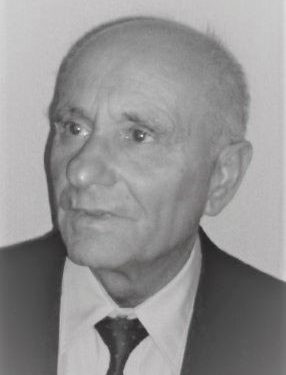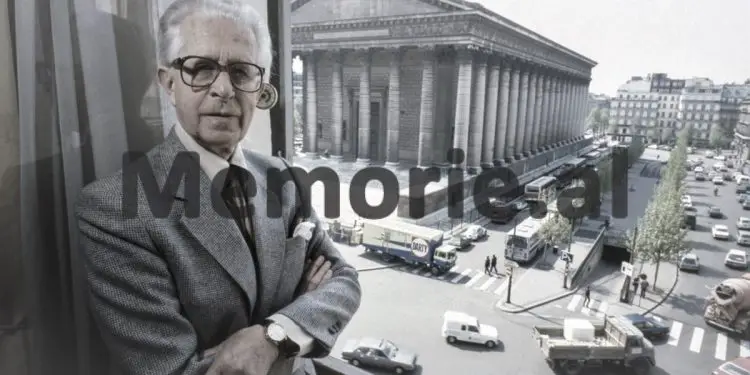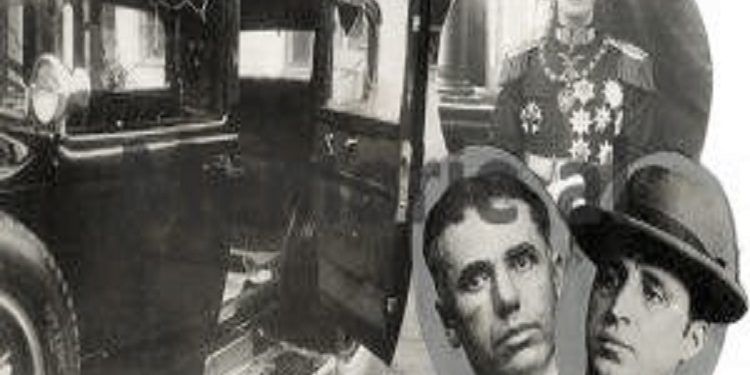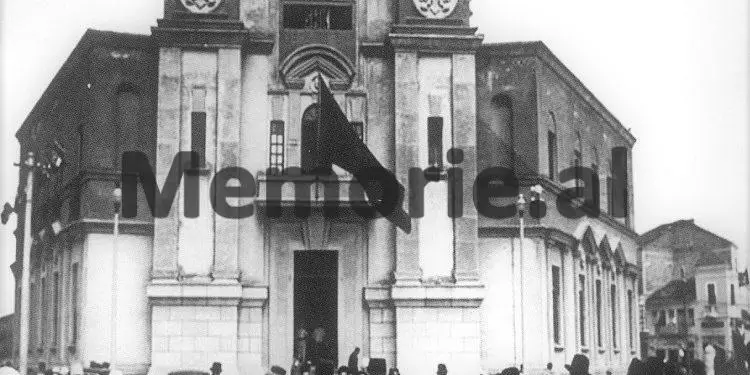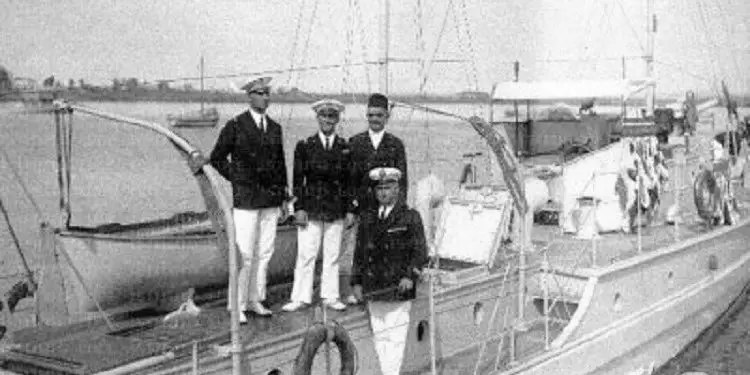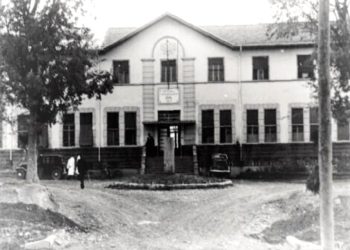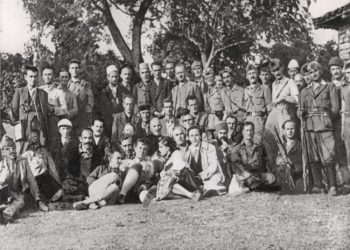By Sven Aurén
Translated by Adil N. Bicaku
Part six
ORIENTI EUROPE
Land of Albania! Let me bend my eyes
On thee, thou rugged nurse of savage men.
Lord Byron.
In the book “Orient of Europe”, the author of the work is the Swede Sven Aurén. They are impressions of traveling from Albania from the ‘30s. His direct experiences without any retouching.
In a word, the translation of the book will bring to the Albanian reader, the original value of knowing that story that we have not known and we continue to know it, and now distorted by the interests of the moment.
Now a little about what these lines address to you: My name is Adil Bicaku. I have worked and lived for over 50 years in Sweden, without detaching for a moment, the thought and feeling from our Albania.
I am now retired and living with my wife and children, here in Stockholm. Having been for a long time, from the evolution of the Albanian language, which naturally happened during these decades, I am aware of the difficulties, not small, that I will face, to give the Albanian reader, the experiences of the original.
Therefore, I would be very grateful if we could find a practical way of cooperation together, to translate this book with multifaceted values.
Morally, I would feel very relieved, paying off part of the debt that all of us Albanians owe to our Albania, especially in these times that continue to be so turbulent.
With much respect
Adil Biçaku
Continued from the previous issue
Who is this Ahmet Bey Zogu now?
I have already shown what difficulties the Turkish sultans had with the leaders of the Albanian highlands. Albanian cities were located in difficult terrains and were well protected and required extraordinary efforts to defeat them. Add the unwavering authority of the bayraktars. Only one word from the chief and the tribe is ready: a military unit, which with their moral skills and excellent knowledge of the terrain, constituted an almost invincible resistance.
This oriental state art, however, did not have only weapons at its disposal. They tried to win over the Bajraktars with gold, with pompous titles, and realized that they could use their skills in the Turkish state administration. In this way appear a number of pashas, with titles inherited among them, one head of the Zogu family. Albanian aristocrats gained great wealth over time and continued to remain the leaders of their tribe’s generation after generation. But as for the oriental state art, no matter what you say, so the High Gate did not have any easy game with the noble leaders of the highlands. The Zogu i Matit tribe was one of the most difficult. The pashas could never have made it clear to themselves, that in the first place, they were citizens of the Sultan and in the second place Albanians.
Based on this, one of the generally widespread legends of our Europe is shattered: this current King of Albania, is not the energetic shepherd of the sheep, who exchanged the shepherd’s crook with the bandit’s rifle, he managed to confuse among the red files, of Almanach de Gothas. He is a born aristocrat and a member of one of the most noble families of Albania, although not, that some Albanian scholars of genius, to explain the Kingdom, allude and can prove any direct tribal connection with the hero of freedom Skanderbeg.
He received an excellent education and, at an early age, realized that he could expand his influence beyond Mati. Those who devoured without breathing the fantasies of the world press, about the tale of the life of the king of the Albanians, should not feel disillusioned with this tale, of the real continuation of life. Ahmet Bey Zogu’s career is quite strange.
He was born in the small town of Burgarjet in 1895, where his father Xhemal Pasha died soon after in 1908, just when the Turkish movement began to raise hopes for a speedy freedom for the poor people of Albania. The mother, born Toptani, seems to have been clear from an early age about what opportunities could be given to her son, in the event of a declaration of Albanian independence, and sent little Ahmeti to Constantinople to receive a high education. He first enrolled in the school of the nobles, of Gallata-Sarai, and from there, in a school of cadets, where he became an officer.
While the boy was away, his mother held the position of head of the Mati tribe in a way that eliminated all possibilities for other members of the tribe, Zogu or Toptani, to occupy this desired position. It’s generally a very interesting role that this future Mother, Queen, plays. She by nature is endowed with a wise head, with an admirable aptitude, and a great ambition. She is always up to date on political developments and takes very decisive positions on Albanian problems.
For her there is only one solution to the dream of Albanian freedom: an independent Kingdom, with her son as Monarch. Since the beginning of the new century, she with official statements gives an answer for her determined position on this issue. And three decades later, when the big dream of her life came true and she received the official title of “Queen Mother”, she still exercises a decisive influence on her son, in government activity. She is the greatness and weakness of Ahmet Zogu. The young king has been accustomed to trusting this powerful woman since childhood. When she dies in early 1935, it is a death, the consequences of which extend beyond the circle of the Royal family itself.
When the Balkan War broke out, Ahmet Zogu returned to Mat. He is 17 years old, a self-proclaimed leader of his tribe, and when Serbs invade Albania, to take advantage of the poor condition of the Turks, he fights like a man, with the men on the mountain passes of Mat. When Ismail Bej Qemali proclaims the proclamation of the first Albanian independence in Vlora, he is one of the representatives of the people, who seek to give the necessary strength and authority to that proclamation.
But the road to an Albanian Royal Throne is long and difficult, as another Albanian aristocrat has tried: Ahmet Zogu’s uncle, Esad Pasha. The tribal connection with this politician, a legionary commander in the service of foreigners, is in fact an obstacle to Ahmet Zogu’s plans. The name of Esad Pasha, sounds bad in Albania and Esad, has exactly all the reasons to keep this young man of the tribe, in the shadows. Any great harmony does not seem to have characterized the relationship of these two, with each other. When the family up there in Mat, sees where it is taking Esad Pasha, the Ministry of War under Prince Wied’s operetta, it is ready to immediately choose its own party.
Ahmet Zogu, goes to the Prince and swears to him, for his loyalty, which is a nice behavior, when he, like his uncle, could think of taking advantage of the weak position of this new Monarch. He besides her, does not content himself only with the oath. Together with the powerful chief of the Mirditors, in the north of the country, Preng Bib Doda, aims in every way to strengthen the position of the Prince and when the revolts in Epirus and Shijak ignite, he tries to unite the Albanian people, through fiery manifestos. This policy should be unconditionally written in the list of merits of Ahmet Zogu. He set aside his ambitions for the demands of the homeland.
During the World War, he sided with the Austrians, because then, it seemed, the Austrians were interested in an independent Albania. But in reality, Austria does not nurture any opinion about that work, but knows that through such incentives, it hopes to build very valuable support to a large part of the highland tribes. At one point, it seems that the Austrian troops will be defeated by fate and the Mati tribe, led by Ahmet Zogu, will do everything possible to drive the Serbs out of the country. After her it is believed that the time has come. Ahmeti sends a call for a national congress in Elbasan.
The call does not belong only to the people in the country. The Albanian colonies in Sofia, Bucharest and Luzan are being asked to attend this congress, whose task will be to draft a final constitution. But the Austrians do not want to know at all about this feast of independence fantasies. From the ‘Ballhaus’ Palace, the order came to stop the congress and Ahmet Zogu was forced to travel to Vienna, where his stay, if not in form but in content, was simply an exile. Until the end of the War, it was held in the Austrian capital. Here he comes into contact with Western ideas, in a completely different way, which he had previously had occasion. He spent time studying the organizational structure of Western society and delving into the administrative problems of the Austrian state.
He discovers what a fundamental difference reigns between the Austrian and Albanian peoples and realizes that it is so easily impossible to transfer a Western state organization to Albania with eastern conditions. Herein lays the greatest difficulty. An Albanian state form must be adapted to a people who still live in the logic of the Middle Ages, who neither now nor so easily can abandon the old image of the world, for something they certainly like in the fog of want, but still cannot conceive. The administration of the future state must be formed, taking into account up to a thousand circumstances that a simple Western one does not have to count on it.
In all states there are discrepancies between the careful restraint of the older generation and the destructive one on the younger one. In Albania the contradictions are so deep, to the end. A large number of young intellectuals have studied abroad; have seen cities like Paris, London and New York, confronted with modern people and modern ideas. Leaders up in the mountains even though the influence of youth is always colossal, they have their limited world, from these mountains the gray paint, which is the first they have seen and is the last, they want to see, before it starts the way to one of Muhammad’s guaranteed paradises. Youth burns with a hatred and stupidity, which characterizes the zeal for reform. The elders always see it as natural, that a man has a rifle in his arm, when he leaves the house, he does not see his wife, before the wedding day, and he as an honorable man, respects the unwritten but existing law of blood feud.
In what passion Ahmet Zogu, elaborated his reform plans, during this involuntary stay of Vienna, is of course difficult with the trial, but it is certainly that the simple western atmosphere, has left an indelible impression. Apparently, he must have after the next state organization, quite clear to himself, when he urgently after the great peace, returns to his country. Turhan Pasha, who heads the provisional government in Durres, entrusts him with command over the available troops. He is now 23 years old. When the international garrison empties Shkodra, it suits the formation of the new Yugoslavia, to try to realize the old wish of the Serbs, but they see the position of Ahmet Zogu, too strong to be able to do anything. On March 27, 1920, this long-awaited National Congress finally begins, not in Elbasan, but in Lushnje. The new government is elected there and the Ministry of Interior is covered by Ahmet Zogu.
***
That same year, a rival for power disappears, not only for this new Interior Minister, but for the entire entire government. Esad Pasha, who has retired to Paris, where he establishes a propaganda bureau and thanks to good relations, within high diplomacy, always able to play a role, is killed on a boulevard, by a fanatical Albanian student. The killer returns to Albania, is honored as a hero and then he too is killed. This new state has great and difficult birth pains. Political assassinations are the order of the day. The disappearance of Esat Pasha from the arena is certainly a relief, but the new government faces terrible difficulties. Contradictions between landowners, beys and radical youth add to the risk of founding a party.
Both desires are strongly represented in the administrative system, which the government tries to raise and personal ambitions, often dominate in the highest sense and in a disturbing way, over national interests. It is added that the neighboring countries, which surround it, have not given up their hopes at all. Yugoslav agents, Greek and Italian, spend the money of their mandates to keep the opposition in power. Another old interest lies ahead: Russia. The government does not have the strength to take the necessary dictatorial powers and is forced to resign, at the end of 1920. Then follow two dense governments as a result, but Ahmet Zogu, is again this time in the capacity of Minister of War.
The situation at the moment is extremely critical and at one point, it seems that the Albanians’ dream of independence would be buried again. Yugoslavia has managed to gain a dangerous influence, among the tribes in the northern part of the country and there is already open talk of a “Republic of Mirdita”. Soon the revolt is fully ignited and despite the hopeless measures of the Minister of War, the rebel army splits up to 50 kilometers north of Tirana, while the government of Belgrade rubs its hands with pleasure and thinks that now it would finally be clear the most annoying Albanians. But in that moment a sensation occurs. The United Nations had just been established, and it seemed that the time had come for a practical example of its possibilities. To the surprise of the world, Albanian independence suddenly officially receives international recognition. An international commission is finally elected to determine the borders, and Yugoslavia has no choice but to, at least formally, withdraw from the game.
Those three years that follow, cause for Ahmet Zogu, all those new difficulties. The storm of foreign policy has indeed subsided, but the internal disruption is too great to be able to deal with the work of reforms with sufficient intensity. Different tribes cannot understand that Albania has elected a central government. In their view, the Tirana government is just one of many governments in the country. Ahmet Zogu, is the strongman of Tirana. Elez Isufi, the head of the Dibra tribe, is an absolute ruler within his own province. Why should Elez Isufi and those brave men of Dibra, submit to that mayor of Mat, Ahmet Zogu, who claims that he has the authority to give orders for Dibra as well?
Ahmet Zogu must be oppressed.
One day in March 1922, Elez Isufi with five hundred men dreamed of entering Tirana. Rifles and machine guns crackle for days. Residents of Tirana put window shutters and members of the foreign colony are confined to the Red Cross Hospital. Phones are paralyzed, so are telegraphs. People are closed off from the outside world and closed off from all the news. On the third day, it seems that the shooting has stopped and you can go out on the street. The telephone poles are on the ground and block the road, some house walls have been destroyed by bullets and near the old mosque, a pile of corpses is lying. Some government soldiers say that Elez Isufi and his men were barricaded in a neighborhood in the middle of the city. Elez Isufi refuses to capitulate, generally refuses to enter into some talks on agreements. Elez Isufi and his heroes think of dying with dignity, as befits a man.
Until the afternoon news spreads.
The government has given Elez Isufi a deadline of 12 o’clock. If he does not want to hand over his weapons by this hour, then the neighborhood he has barricaded will be set on fire.
Elez Isufi continues to refuse.
All families living near the endangered neighborhood are ordered to leave their homes. The streets are suddenly flooded with people carrying furniture and clothes. Women run to the bottom of house walls, with small children crying in their arms. The city is paralyzed by horror.
At half past twelve, Elez Isufi has not yet sent a representative for talks. Government forces throw gas canisters through the walls of the opposition neighborhood, bringing grass and branches. Everything is ready for the big fire, which will get rid of the five hundred fighters of Dibra. Some representatives of the city appear before the Minister of Interior and point out the danger that the whole of Tirana may be burned, but Ahmet Zogu is adamant. “The Minister of Interior has taken command and the answers for the consequences”, that was the answer.
Two minutes before twelve, a car slowly comes from the occupied neighborhood. In the back seat, sitting Elez Isufi and the English Minister, Mr. Eyers, who acts as a negotiator? The car opens the way, through the silent crowd and Elez Isufi, makes a great impression. He wears a black jacket for Skanderbeg, wears heavy serum chains and has two large pistols on his belt. He does not look at all desperate. Rather, you smile heartily, left and right. This is a winner and not a possible one, who is going to the Ministry of Interior, where Ahmet Zogu is waiting for him. The conversation is short, very meaningful and very Albanian.
Elez Isufi, explains that he learned many things during the visit with the state authorities. He understands that the Government of Tirana is fighting for the whole of Albania and not only for Tirana. He offers to take Ahmeti’s side, against the three mayors, who are now the most annoying, to find out: Zija Dibra, Mustafa Kruja and Hamid Toptani. Ahmet Zogu explains that he is satisfied and begs Elez Isufi to return to his mountains and take his people with him, with all their weapons. With this the conflict was resolved and Tirana breathes freely. One less bajraktar, to fight. So it’s very nice.
A little later, Zija Dibra, Mustafa Kruja and Hamid Toptani, capitulated, but this did not end the difficulties of Ahmet Zogu. The economic situation is terrible and without money, you cannot make any reforms. People, who due to low education, have no idea of the difficulties, can only conclude that the promises of improvements are not coming as fast as expected. Dissatisfaction turns into a fierce anti-government action and fierce quarrels make a normal work of parliament impossible. In February 1924, the first of those assassinations that Ahmet Zogu has experienced so far takes place. A young student, an extremist member of the “Albanian Youth Union”, wounded Ahmet Zogu, with three pistol bullets, during the parliamentary session. Ahmet Zogu resigns. Memorie.al




